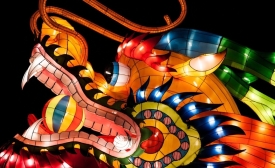confucianism

B. M. Jain's new book examines China's use of soft power tools to improve relations with countries like Bangladesh and India.
The application of power in international affairs has raised an endless debate among those who are in favor of the direct military use of power and those who are in support of diplomacy. This indirect use of power is what Joseph Ney calls soft power...
China has quickly changed before the world’s very eyes, becoming a global superpower and ironically, an impressive leader in capitalistic growth and economic supremacy. [...] These changes in China’s branding and it’s increasingly “Western” appeal have led to an influx of eager businessmen arriving in China with the hopes of enjoying a piece of the “prosperity pie”.
After capturing the hearts of Vietnamese audiences, South Korea continued to conquer the broader Vietnamese market. As of December 2014, South Korea has been Vietnam’s biggest investor, with US$37.23 billion of foreign direct investment in 4,110 projects throughout the country.
Chinese culture enjoys increasing influence in the world. What makes it so attractive? What are the challenges facing it? Over the past eight years, the Confucius Institute has made remarkable achievements in promoting the Chinese culture and language worldwide.
Thus, Seoul fully recognizing the limits of its hard power, values the utility and significance of soft power. Over the years, it has harnessed its soft power resources in burnishing its image at regional and global fora.
While China is often seen as the centre for the production of cheap and sometimes poor quality goods, there are certain other exports the world’s most populous nation hopes will endure: language and culture.







